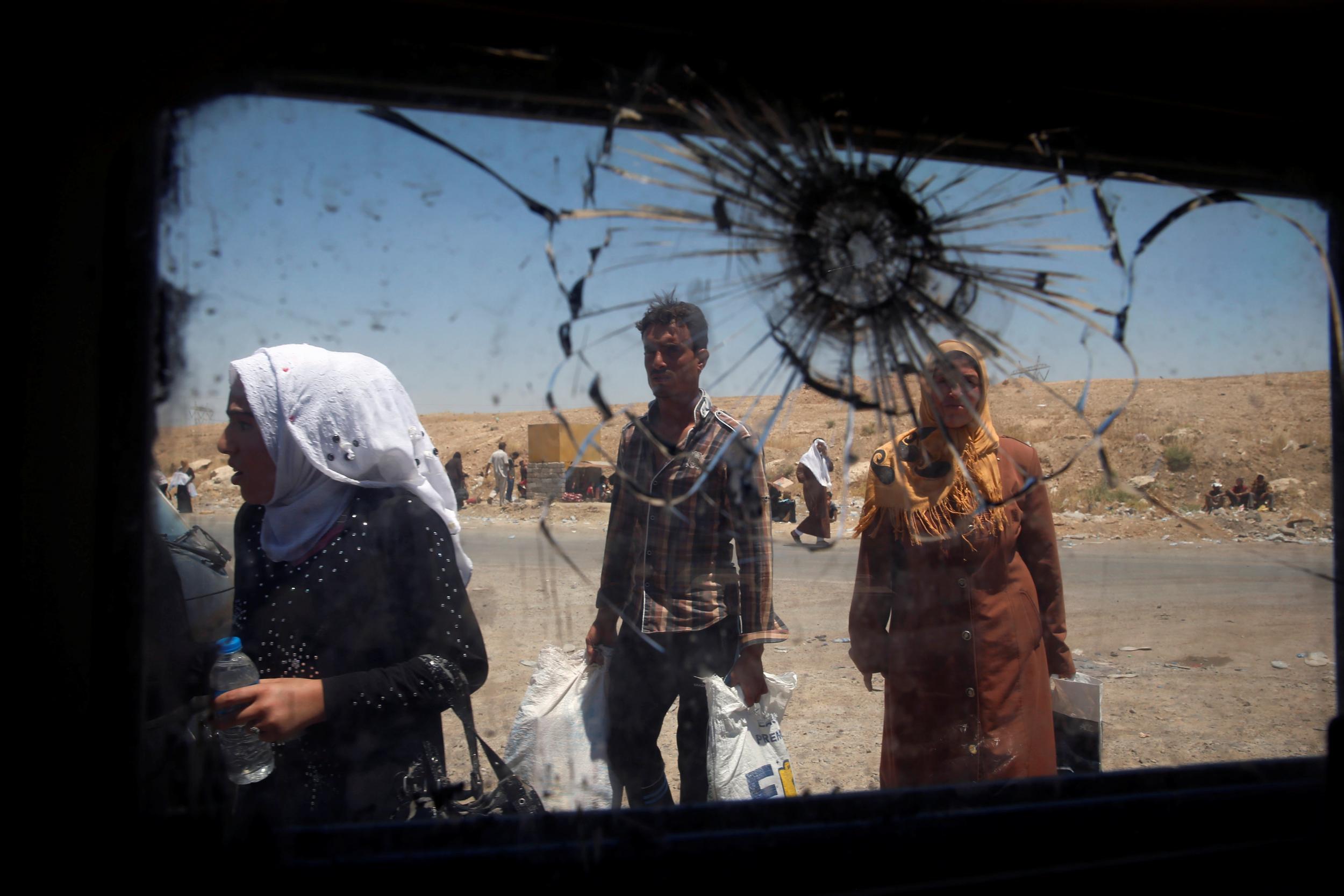Mosul: Victory against Isis could come 'within days' but risk to civilians higher than ever
Food, water and medicine supplies run dangerously low as up to 50,000 residents cope with sniper fire and coalition bombing

Your support helps us to tell the story
From reproductive rights to climate change to Big Tech, The Independent is on the ground when the story is developing. Whether it's investigating the financials of Elon Musk's pro-Trump PAC or producing our latest documentary, 'The A Word', which shines a light on the American women fighting for reproductive rights, we know how important it is to parse out the facts from the messaging.
At such a critical moment in US history, we need reporters on the ground. Your donation allows us to keep sending journalists to speak to both sides of the story.
The Independent is trusted by Americans across the entire political spectrum. And unlike many other quality news outlets, we choose not to lock Americans out of our reporting and analysis with paywalls. We believe quality journalism should be available to everyone, paid for by those who can afford it.
Your support makes all the difference.Iraqi forces have managed to push the last remnants of Isis in Mosul into an area of the city less than a kilometre wide, but the desperate militants are fighting back more fiercely than ever.
The US-backed coalition pushed towards the banks of the River Tigris from the Old City on Tuesday, effectively driving Isis into an even smaller siege zone, leading Prime Minister Haider Al-Abadi to declare that victory will “come very soon”.
There is now just 600 metres (2,000 ft) left to cover between the frontline and the riverbank. “In a few days our forces will reach the Corniche and bring the battle to its conclusion,” Lieutenant General Abdul-Wahab al-Saadi of the Counter Terrorism Service (CTS) told Reuters from the Old City.
There are thought to be fewer than 300 militants left in Mosul – down from an estimated 6,000 when Operation Inherent Resolve to dislodge them from the city began in October 2016.
Those that are left, however, are intent on fighting to the death.
More than 80 suicide bombers in sleeper cells across the city were deployed over the weekend, causing death and damage in neighbourhoods previously declared to be safe. Residents’ homes – many of which are being used to shelter fighters and weapons – were set on fire before the situation was brought back under control.
The coalition retaliated with dozens of air strikes, which also pose a grave threat to civilian safety.
Approximately 50,000 civilians are still trapped, used as human shields by the extremists. Those who do not comply with orders or are suspected of planning an escape are routinely shot.
Many residents are starving or ill from drinking dirty water, leaving some too weak to flee even if they wanted to.
The Old City, a historic district of winding alleyways, is the last pocket of Mosul under jihadist control – but the fight to free the city, once the jewel in the so-called caliphate’s crown, has been long and bloody.
Initially both Iraqi and US forces were hopeful the operation would be completed by the end of 2016. Fierce fighting from Isis, including booby traps, roadside bombs, suicide car bomb attacks and sniper fire – has slowed the operation.
In nine months of fighting a total of 850,000 people have fled their homes and thousands of civilians have been killed by US-led coalition bombing, as well as at the hands of Isis. The Iraqi government has refused to release soldier casualty figures for fear the high toll would damage troops’ morale.
The blazing 45 degree heat and stench of dead bodies have given the last few days of the battle an apocalyptic feel, soldiers on the frontlines report.
Nethertheless, Isis is almost defeated in the city: last week, militants blew up the city’s 12th century Grand Mosque, from which leader Abu Bakr al-Baghdadi announced the creation of the so-called caliphate after his troops swept across northern Iraq from Syria in the summer of 2014.
The demolition was labelled a “sign of defeat” by many Iraqi politicians and military figures. It is believed to have been ordered to prevent the coalition forces from claiming a symbolic victory from the same spot.
The fall of Mosul is dovetailing with the operation to retake Isis’s de facto capital of Raqqa in northern Syria, which has been encircled by US-backed Kurdish militias.
The loss of both cities will effectively end the existence of the caliphate, but Isis is expected to wage a insurgency war across both countries and launch terror attacks worldwide for many years to come.
Join our commenting forum
Join thought-provoking conversations, follow other Independent readers and see their replies
Comments